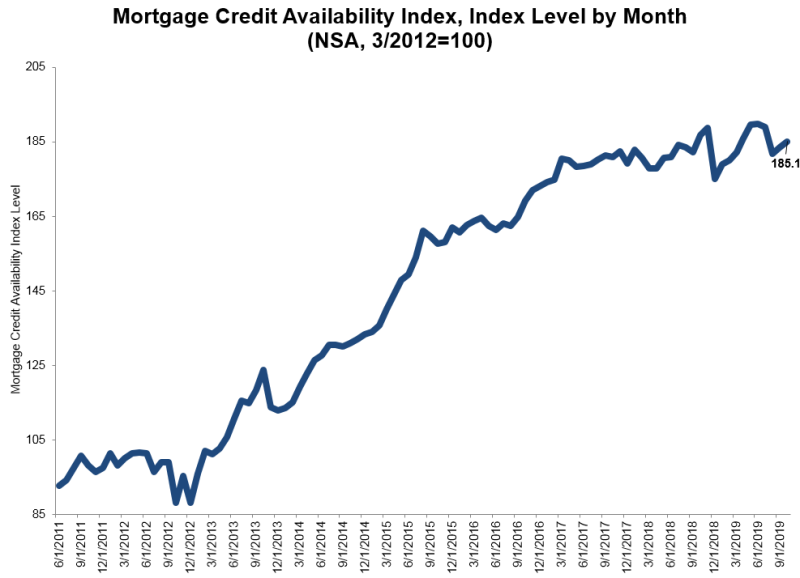Access to government loans continues to decline, but conventional and jumbo loans picked up the slack in October, pushing the Mortgage Credit Availability Index (MCAI) higher. The Mortgage Bankers Association (MBA) said the Index grew by 0.9 percent to 185.1 in October. A decline in the MCAI indicates that lending standards are tightening, while increases in the index are indicative of loosening credit.

"Mortgage credit availability expanded in October, driven mainly by an increase in conventional loan programs, including more for borrowers with lower credit scores, as well as for investors and second home loans," said Joel Kan, MBA's Associate Vice President of Economic and Industry Forecasting. "Credit supply for government mortgages continued to lag, declining for the sixth straight month. Meanwhile, the jumbo credit index increased 3 percent to another survey-high, as that segment of the market stays resilient despite signs of a slowing economy."
The MCAI has four components specific to loan types. The Conventional MCAI increased 2.4 percent, while the Government MCAI decreased by 0.9 percent. Of the component indices of the Conventional MCAI, the Jumbo MCAI increased by 3.1 percent, and the Conforming MCAI rose by 1.3 percent.
The MCAI is calculated using several factors related to borrower eligibility (credit score, loan type, loan-to-value ratio, etc.) gathered from over 95 lenders and investors. These are combined with data from Ellie Mae's AllRegs proprietary product to calculate a summary measure indicating the availability of mortgage credit at a point in time
The MCAI and its components were benchmarked in March 2012 and are designed to show relative credit risk/availability for their respective indices. The Conforming, and Jumbo sub-indices were indexed at 100 while the Conventional and Government indices were indexed at 73.5 and 183.5 respectively to better represent where each index might have been relative to 100.







